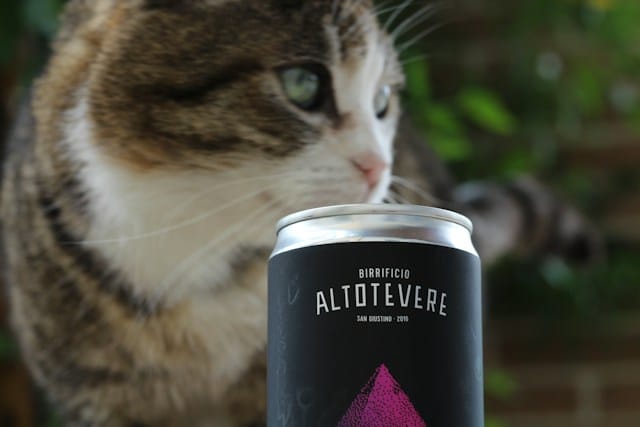How to Manage Chronic Kidney Disease in Aging Cats?

How can you tell if your beloved feline companion is struggling with chronic kidney disease (CKD)? What is the best treatment for aging cats diagnosed with this medical condition? Chronic Kidney Disease in our furry friends is a grave affair, but a touch of knowledge and some tender care can make their lives comfortable.
Understanding Chronic Kidney Disease in Cats
First, it’s important to understand what chronic kidney disease is and how it impacts your pet. CKD is a condition where the cat’s kidneys gradually lose their function over time. As the kidneys falter, they struggle to filter waste from the cat’s blood. This can lead to a myriad of symptoms that can distress your pet and cause serious health issues.
A lire également : Choosing a pet: Factors to consider
The kidneys are vital for maintaining balance in the body. They are responsible for filtering out toxins from the blood, managing the body’s hydration levels, and keeping electrolytes such as potassium in check. When the kidneys fail, they start to lose their ability to perform these functions effectively, leading to various symptoms and health issues.
Spotting the Signs of CKD in Cats
How can you tell if your cat has CKD? It can be quite challenging. Cats are masters at hiding their discomfort and often don’t show signs of illness until the disease is advanced. However, several common signs can indicate that your pet may be suffering from CKD.
Sujet a lire : Best cat breeds for an apartment
One of the most noticeable signs of CKD in cats is increased thirst and consequently more frequent urine output. You may observe your cat spending more time at the water bowl or notice that the litter box is wetter than usual. Other symptoms can include a loss of appetite, weight loss, and a dull coat. In severe cases, cats may also exhibit vomiting, diarrhea, and a loss of interest in activities they once enjoyed.
If you notice any of these signs, it’s important to consult your vet right away. They will conduct blood tests and urine analysis to accurately diagnose CKD and determine its stage.
Managing CKD Through Diet and Hydration
One of the essential aspects of managing CKD in cats is through diet modification and ensuring your cat stays well-hydrated. Since the kidneys are no longer able to filter waste effectively, it’s crucial to reduce the workload on the kidneys by limiting the amount of waste they need to filter.
A special diet low in protein, phosphorus, and sodium, but higher in omega-3 fatty acids, fiber, and antioxidants, can help manage CKD. Too much protein can produce excess waste that the kidneys struggle to remove, while limiting phosphorus and sodium can help slow the progression of the disease.
Keeping your cat hydrated is also vital. As the kidneys lose function, they can’t concentrate urine as effectively, resulting in a loss of water through excessive urination. Encouraging your cat to drink more water will help compensate for this. Some cat owners find that their cats prefer running water, so investing in a cat water fountain might help increase your cat’s water consumption.
Medication and Supplements for CKD in Cats
Alongside dietary changes, your vet may suggest medication and supplements to support kidney function and manage the symptoms of CKD. Common medications include drugs to control high blood pressure, which is often a complication of CKD. Other treatments can include phosphate binders to help control phosphorus levels in the blood, and drugs to stimulate red blood cell production if your cat is anemic.
Keeping the balance of electrolytes and minerals such as potassium is also crucial in managing CKD. Some cats with CKD may have low potassium levels, which can lead to muscle weakness, stiffness, and loss of appetite. In such cases, your vet may recommend a potassium supplement.
Again, remember, every cat is unique, and what works for one may not work for another. Always consult with your vet before starting any new medication or supplement.
Regular Vet Checks and Monitoring
Finally, regular vet checks are crucial in managing CKD in cats. Your vet will want to monitor the progression of the disease and adjust treatment as necessary. They may also need to modify the diet or medications based on how your cat responds.
Regular vet checks also offer an excellent opportunity to discuss any concerns you may have. This might include changes in behavior, appetite, or any new symptoms you’ve noticed. Remember, you know your cat best, so any changes you observe can provide important insights into how your cat is coping with CKD.
In conclusion, managing CKD in cats involves a balance of diet modifications, medications, and regular vet checks to monitor the disease’s progression. With the right care and attention, cats with CKD can still enjoy a good quality of life.
Emotional Support and Quality of Life for Cats with CKD
Recognizing that your furry friend suffers from chronic kidney disease can be distressing. However, it’s essential to remember that with the right care and treatment, most cats with CKD can maintain a good quality of life for many years.
Cats with CKD may become more lethargic or show less interest in play and exploration. However, they still need love, attention, and stimulation. Enrichment activities, such as providing toys or playing games, are a great way to keep your cat engaged. Gentle petting sessions can also provide comfort and reassurance to your cat, while also offering you a chance to check for any physical changes such as weight loss or changes to their coat condition.
You might also need to make some adaptations to your home environment to help your cat. For example, if your cat is experiencing muscle weakness due to low potassium levels, consider providing ramps or steps to help them get to their favorite spots without straining.
While dealing with CKD can be challenging for both you and your cat, remember the most important thing is to provide a loving and comfortable environment so your cat can enjoy their golden years with minimal discomfort.
Coping with End Stage CKD in Cats
As CKD advances to the end stage, the disease can create more noticeable changes in your cat’s behavior and overall health. The symptoms may become more severe, and your cat could show signs of distress. At this stage, it’s vital to consult with your vet, who can provide guidance and help you make decisions about your cat’s care.
End stage CKD can cause a poor appetite, lethargy, and significant weight loss. Your vet may suggest more aggressive treatment options, such as intravenous fluids or dialysis, to help manage waste products in the blood. It’s crucial to keep a close eye on your cat’s quality of life during this time.
If your cat is in pain or suffering, euthanasia might be a consideration. This is never an easy decision to make, but sometimes it is the kindest option. Talk with your vet about the signs of suffering in cats so you know what to look for. The decision should always be about ensuring your beloved pet isn’t in pain or discomfort.
Conclusion
Managing chronic kidney disease in aging cats takes effort, understanding, and a great deal of care. However, with the right diet, medication and regular check-ups, it’s possible to slow down the progression of CKD and ensure your cat maintains a good quality of life.
Most importantly, cats with CKD need their owner’s love and attention. By providing a comfortable environment, emotional support, and regular vet checks, you’ll be doing everything you can to help your cat manage this condition. Remember, CKD doesn’t mean an immediate end to a happy, healthy life for your cat. With the right care, your feline friend can still enjoy many affectionate purrs and cozy cuddles.
